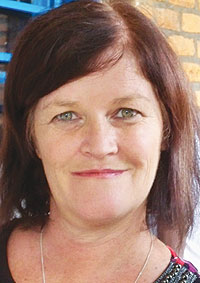Mental health is a relatively unexplored and unrecognised contributor to low academic results within the educational environment of Rwanda. Detachment, trauma, bipolar, depression, disassociative identity disorder (DID’s), attention deficit disorder (ADD), attention deficit hypertension disorder (ADHD) are terms unknown to most of teachers countrywide and yet these issues are real among students.


Mental health is a relatively unexplored and unrecognised contributor to low academic results within the educational environment of Rwanda. Detachment, trauma, bipolar, depression, disassociative identity disorder (DID’s), attention deficit disorder (ADD), attention deficit hypertension disorder (ADHD) are terms unknown to most of teachers countrywide and yet these issues are real among students.
Bipolar, depression and DID’s are more likely to manifest between ages 13 onwards; whereas detachment disorder, ADD or ADHD manifest in early primary school years. Seen as indiscipline, I’ve witnessed students endure corporal punishment (before it was abolished), suspended, even expelled, all due to lack of diagnosis and understanding. In particular, I draw attention to DID’s as it specifically relates to an era associated to birth and nursery age children immediately post genocide. I have had firsthand experience with several students I suspected of DID’s and/or bipolar and able to seek assistance in order to coach them through to S.6 national exams.Disassociative identity disorder (DID’s) is a severe and chronic condition, where not only is there a lack of connection between one’s own thoughts, feelings, actions or senses, to the extreme whereby alternate personalities can exist in one’s state of consciousness. It is not schizophrenia as such. DID’s is closely related to Post Traumatic Stress Disorder (PTSD). DID’s develops during childhood (pre-age 7) during the sensitive time that the individual’s personality is being formed. The disorder can result from ongoing and severe neglect and abuse (emotional, physical, and/or sexual) or trauma (such as witnessing death, war, genocide, disasters) and culminates as an inner coping mechanism to intolerable situations. Symptoms can include loss of time ‘blackouts’, trances, headaches/migraines, abdominal pain, inability to recall large portions of childhood, sudden changes in mood/behaviour, co-morbid problems, anxiety, suicidal ideation and/or self harm. Other symptoms can include dissociate avoidance to situations or people or anything likely to remind of the childhood trauma; intense emotions including severe anger outbursts; alcohol and drug abuse ... all to dull the pain which remains inside their heads.Of lesser degree is detachment. Detachment, the opposite of attachment, refers to the bonding which takes place in a natural family unit of having mother, father, siblings and/or extended family. An American theorist Maslow describes the lowest basic human need, is the sense of belonging, which is extremely important to early childhood development.Proven by educational theorists such as Piaget and Vygotsky, a child’s educational foundation is underpinned through bonding, belonging and social development/interaction. Imagine for a moment the situation of 1994-1997 where it was calculated some 1million children were left single or double orphaned, became heads of families, institutionalized, traumatized, emotionally scarred, abused and totally detached from any form of bonding, belonging and security.These are but a few scars on the community of youth in Rwanda who have battled through to our education system but have never been listened to, never had the opportunity of a counselor; some may have never heard the simple words ‘I love you’; for a long time were never given the feeling of security. These children are now the youth of Rwanda battling with their identity, future, academic abilities.A bold legislation in 2011, the State Minister for Primary & Secondary Education declared no child under the age of 8 years should be in boarding school. This was later upgraded to any child less than 10 years. Many reasons are behind the legislation, however the main one being, children belong at home where there is bonding and sense of belonging is formed. For a minority of children, the legislation was detrimental as it forced abused children to remain in horrid situations, or gave communities excuses to not send children to school.Rwanda’s experience of 1994 will continue to have indirect impacts on the nation’s youth and educational outcomes for some time, just as nations such as Vietnam who still reap birth deformities, mental health disorders and family detachments some two generations on from the Vietnam War. When life is broken down to bare basics - what we have is faith, hope and love; but the greatest of these is love. The writer is the deputy principal, student welfare, Riviera High School


